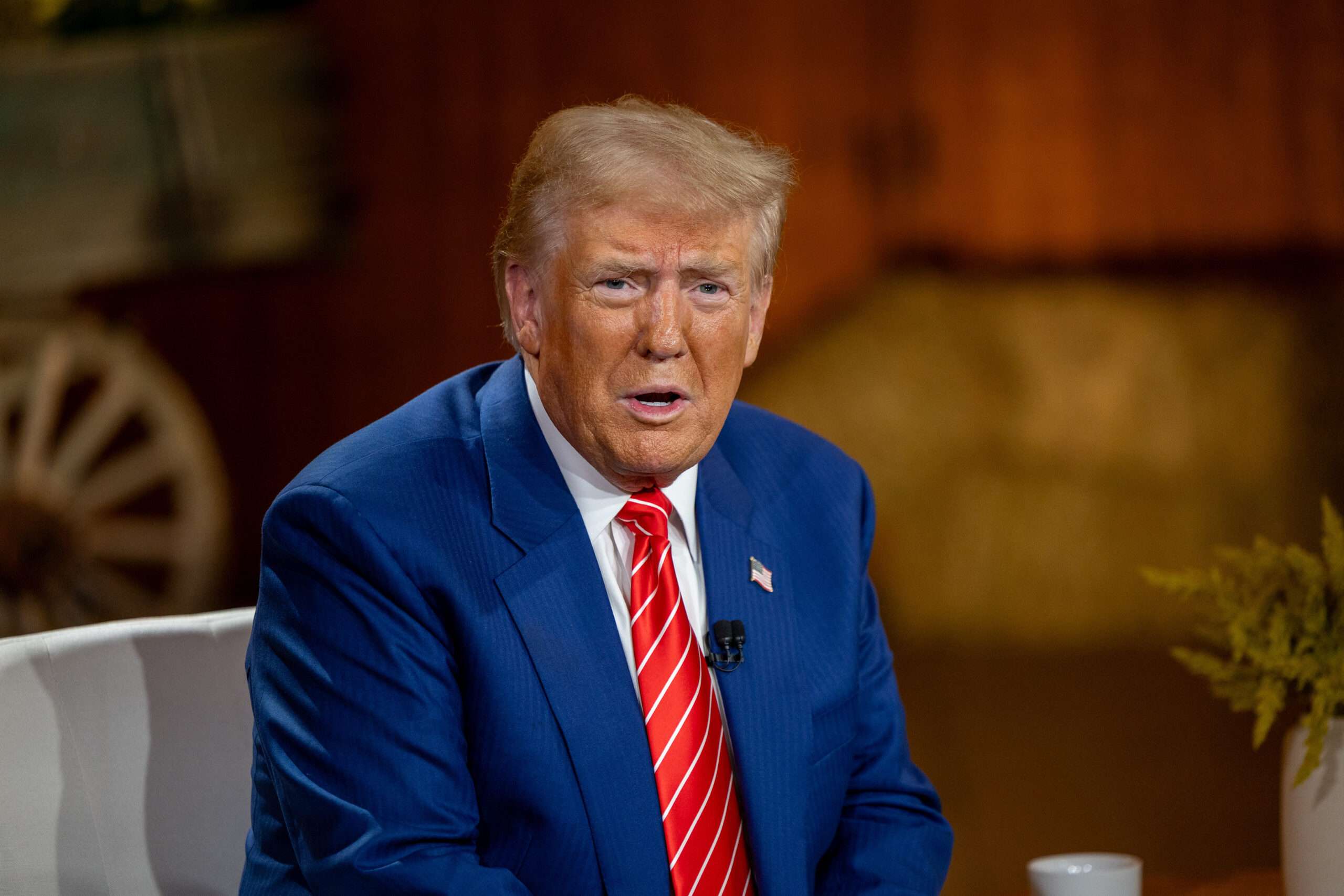Trump Did Not Support a Military Attack on Those Who Oppose His Campaign
The recent comments made by former President Donald Trump during a Fox News interview have created significant controversy, drawing criticism from various media outlets. In this interview with Maria Bartiromo, Trump discussed his expectations for potential unrest on Election Day, particularly in the context of his candidacy. He suggested that the real threat to peace that day comes not from external forces but from what he describes as “the enemy from within,” a label he applies to radical groups he believes will oppose his election. His comments included the notion that law enforcement might not be able to manage potential chaos without assistance from the National Guard or even the military. However, Trump’s assertion about military involvement has been widely misconstrued by several news organizations, including the New York Times, which implied that he was advocating for deploying the military against all dissenters. This misinterpretation has sparked debates about his intentions and the implications of his rhetoric.
While Trump’s remarks were alarming and suggestive of an authoritarian posture, his actual claims were misrepresented, leading to an exaggerated narrative about the potential militarization of American law enforcement against citizens. Critics seized on his statements, framing them as a dangerous proposal to use military force against political opposition, which has been met with broad backlash within the political landscape. Republican Congressman Byron Donalds, a Trump ally, pushed back against Trump’s Military assertion, emphasizing the historical precedent in the U.S. against deploying active military troops within the country during civil unrest. The comments have highlighted a tension between Trump’s views and long-held practices about civilian governance and military involvement, underscoring a growing concern about the implications of his statements for the conduct of future elections.
The framing of Trump’s statements by the media has reflected a broader pattern of interpreting his comments in a polarizing manner. Headlines from outlets like CNN and Vanity Fair echoed interpretations that painted Trump as inciting the military against his critics. Such characterizations, often condensed in sensational headlines, risk oversimplifying his intent and leading to misperceptions about his governance philosophy and approach to dissent. While his language did imply a willingness to call upon serious measures to handle opposition, the exaggerated interpretations distract from reasonable discourse regarding his political style and the implications for American democracy.
Throughout the interview, Trump repeatedly mentioned the notion of “the enemy from within,” indicative of his belief that internal political adversaries pose a more significant threat than external factors like foreign nations. He explicitly labeled figures such as Rep. Adam Schiff as representative of this internal threat, suggesting that such actors undermine national security. By framing political opponents as traitors or enemies, Trump exacerbates division, creating a narrative that encourages his supporters to view dissent not as a democratic critique but as a fundamental threat. This rhetoric poses risks not only to national unity but also to the integrity of political discourse, as it promotes an environment of fear and hostility.
Once again, Trump’s comments have returned attention to the question of authority and governance. His rhetoric raises concerns about future executive power and its potential use against domestic opposition. The mischaracterization of his statements highlights a significant divide between media interpretations and the reality of political strategy. Whether or not one agrees with Trump’s take on handling dissent is somewhat moot; the discussion transcends the individual and touches upon the broader principles of governance and constitutional limits on executive authority. In this light, the conversations surrounding Trump’s comments should shift from sensationalism to serious contemplation on these weighty topics.
In summary, Trump’s recent interview has triggered a complex and layered response, revealing deep divisions within the political sphere regarding the interpretation of his remarks and the implications for American democracy. Misinformation and exaggeration can undermine legitimate concerns about governance style and authority, leading to a polarized environment that complicates the national conversation. While the arguments for concern over Trump’s rhetoric are valid, mischaracterizing statements can ultimately weaken the broader case against authoritarian tendencies. Engaging in earnest discussions regarding the balance of power, dissent management, and democratic principles allows for more productive discourse that is crucial for the future of American political culture.
Share this content:












Post Comment